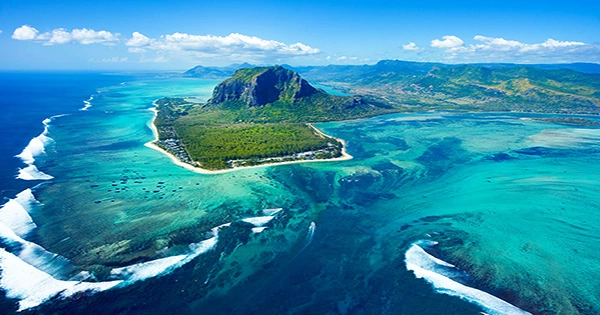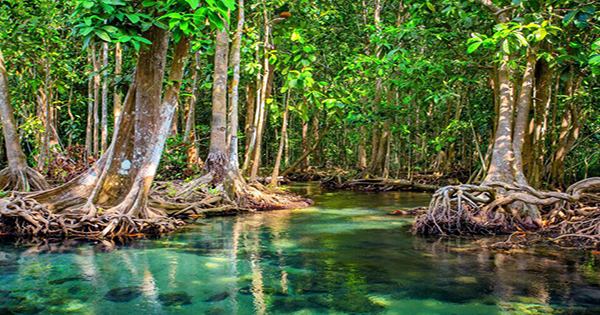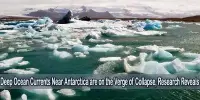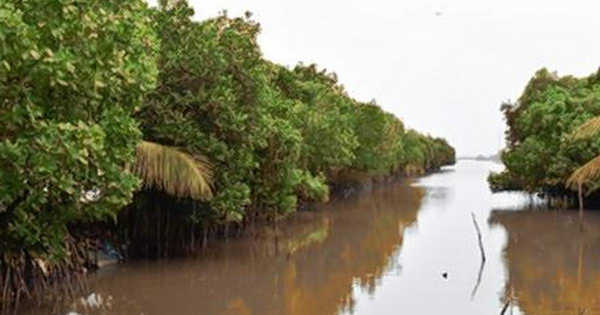Although it may sound like something out of a modern catastrophe film, an underwater waterfall actually exists in Mauritius today. This East African nation’s location on the Mascarene Plateau, a submerged plateau, allows for the extraordinary structure.
Land masses on top of undersea plateaus like Mascarene can abruptly plunge into the deep ocean, in contrast to continents, whose land masses gradually sink into the ocean with continental shelves that are located far offshore. Due to a geological anomaly, if you went swimming you might quickly find yourself bobbing above waters that extend thousands of meters below.
The region’s steep and uneven topography is a product of the same volcanic activity that created Mauritius some 8 million years ago. The plateau, which was a volcanic hotspot, experienced massive underwater eruptions that shot magma through Mauritia’s continental crust. This magma then hardened to create the Mascarene Islands.
Surprisingly, minerals in Mauritius’ white sand beaches provide proof that the island nation was born from Mauritia. Zircon-shaped grains of the incredibly strong substance, which is linked to continental crust, have been determined to be up to 2 billion years old.
Although there are some shallower marine ecosystems in the area of Mauritius, the location of underwater “waterfall” is one of the places where the seafloor abruptly drops. Its waterfall-like effect is more attributable to the sand sinking than to the flow of water.
Sand is abundant in Mauritius, and while it mostly keeps to itself in some areas, it spills into the horseshoe-shaped drop-off at the location of the underwater waterfall. The sands of the shallow shelf are swept into the deep ocean as a result of erosion, which is one reason why volcanic islands don’t survive indefinitely.
The island is only a few million years old, but it has already ceased expanding, and in a few more million years it will probably sink back into the sea. It is debatable if humankind will endure long enough to experience the effects of the island getting smaller and smaller as a result of the ocean currents.
The underwater waterfall would therefore have minimal effect on your swimming other than possibly being a little eerie to drift over, although looking like a dramatic water feature that could well take you and your inflatable flamingo floater under.
















